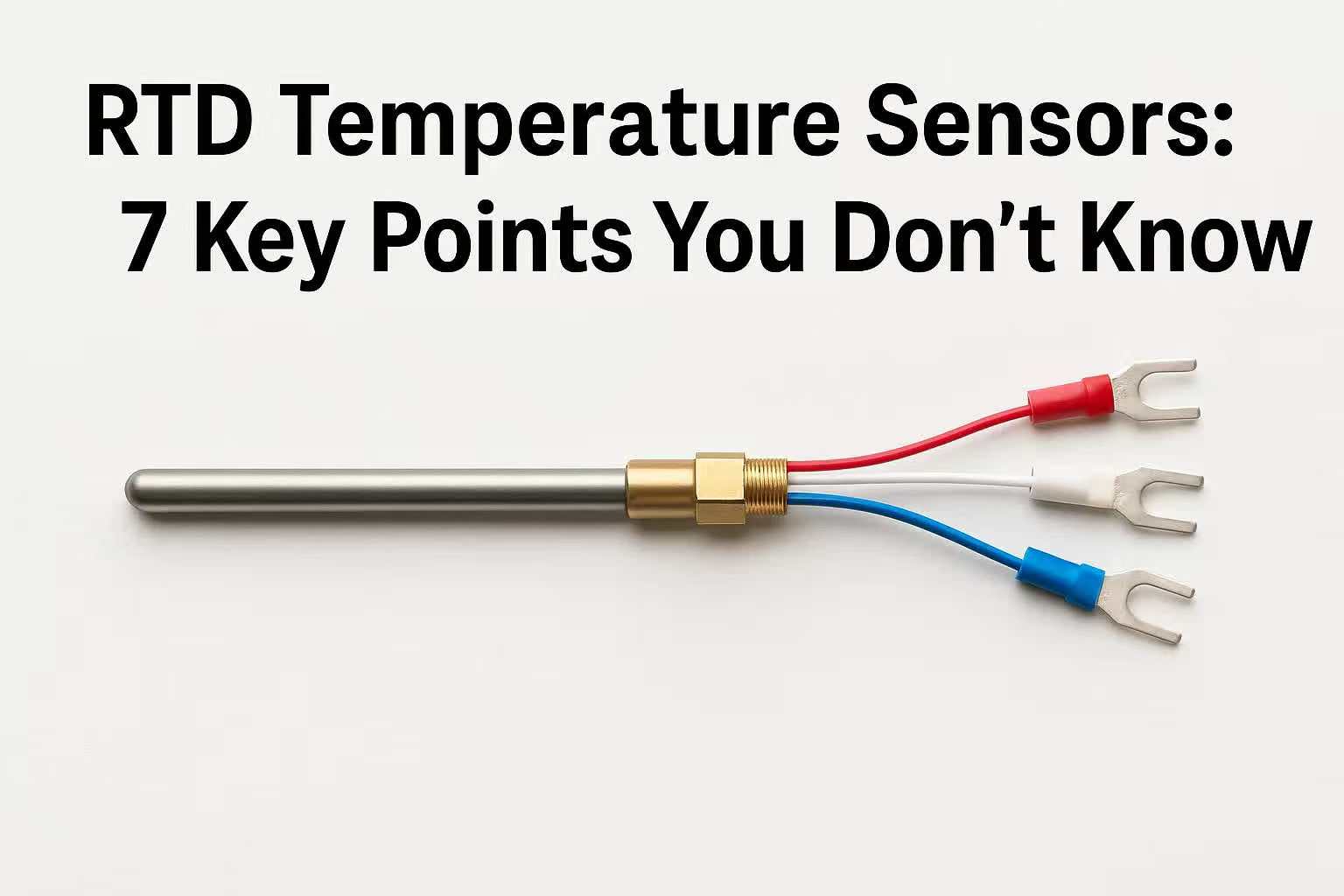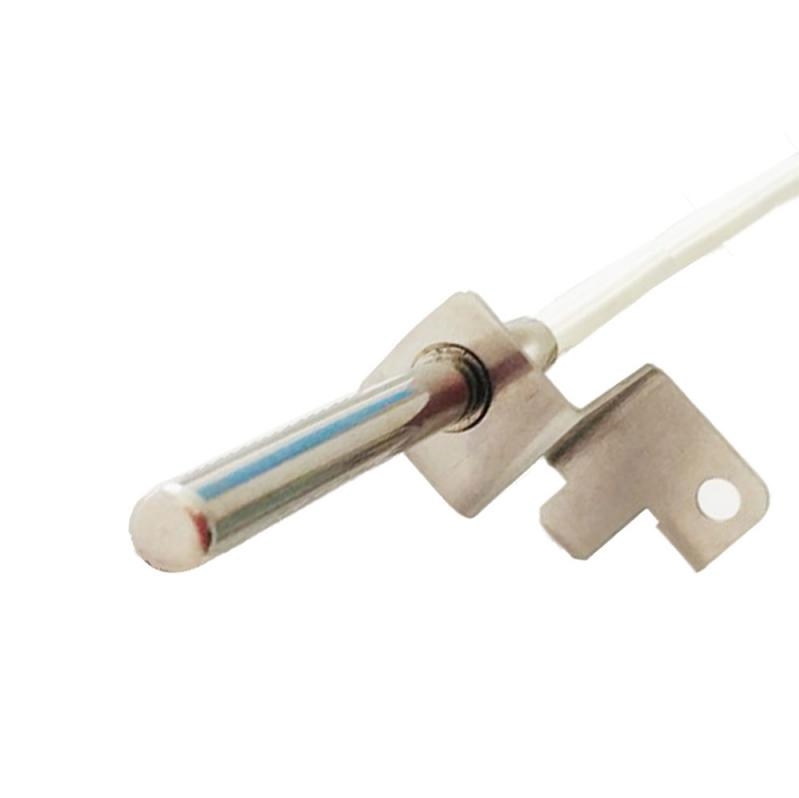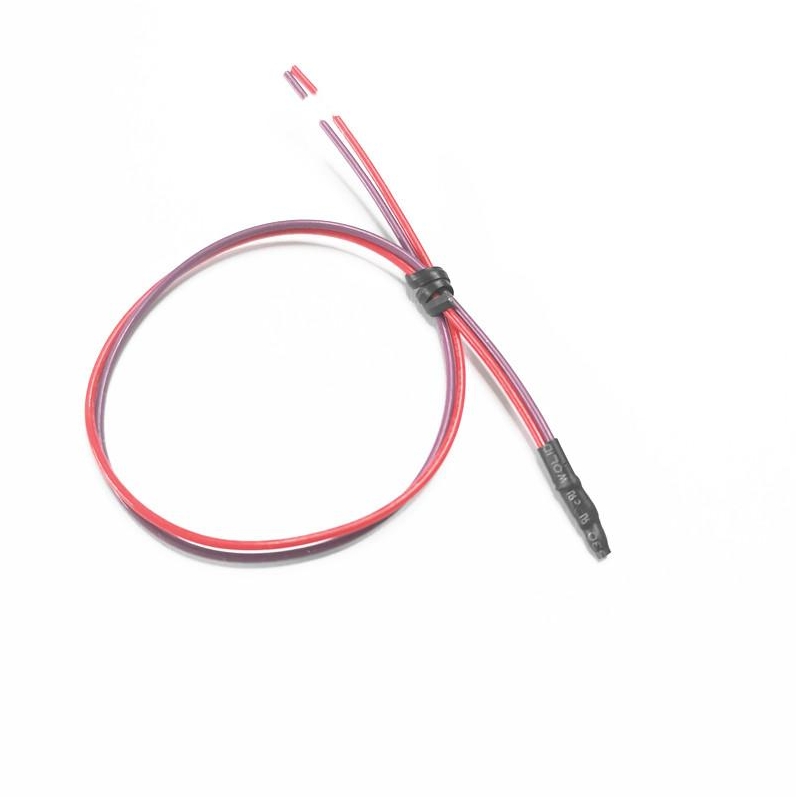RTD Temperature Sensors: 7 Key Points You Don’t Know
Jul 17, 2025RTD temperature sensor has become the preferred choice of many industries for its high linearity, long-term stability and repeatability. In modern industrial control, food processing, HVAC systems and even medical equipment, temperature measurement accuracy and reliability are crucial to product quality and safety. In this article, we will analyze the working principle of RTD temperature sensor, Focusens product highlights, technical selection guide, industry applications and real cases in detail, and guide you to quickly obtain samples, customized services and technical support.

RTD is the abbreviation of "Resistance Temperature Detector". It realizes temperature measurement through the property that the material resistance changes with temperature. The commonly used material is platinum (Pt), whose temperature coefficient of resistance (TCR) and linear characteristics meet the IEC 60751 international standard, which can achieve extremely high measurement accuracy.
The resistance of Pt100 at 0°C is 100Ω, while that of Pt1000 is 1000Ω. Pt1000 is more resistant to interference in long-distance wiring or electromagnetic interference environments.
Focusens supports Pt100/Pt1000 customization, with a response time of ~10s and a measurement range from -200°C to +600°C.
2-wire system: simple structure but large detection error;
3-wire system: mainstream industrial application, can automatically compensate for wire impedance;
4-wire system: highest measurement accuracy, suitable for laboratory and scientific research applications
Focusens products cover a variety of structural forms: wire-wound (high stability), thin film (fast response), and provide stainless steel protection tube, threaded installation, food-grade Housing and other options, which can cope with different scenarios such as industry, food, and environmental protection.

Temperature range: -50 to 300°C (extendable to 500°C)
Material: Food grade SUS304/SUS316
Accuracy: IEC 60751 Class A/B, electrical insulation up to 1250–3000V
Applications: Home/commercial furnaces, food sterilization, high temperature processing.
Type: Pt100/Pt1000, optional PVC/Teflon/Silicone/Fiberglass cable; waterproof, rustproof
Measuring range: -50 to 600°C; response time 10s (0.63τ)
Accuracy: Class A/B, compliant with IEC 60751, insulation resistance ≥100MΩ.
For coffee machines and other food equipment, customized high temperature resistance, anti-fouling, waterproof connection.
RTD temperature sensor PT100/Pt1000 3-wire probe (-200–600°C), supports PVC/Teflon/Silicone wiring, meets Class A/B accuracy.
|
Product Model |
Sensor Type |
Temperature Range |
Accuracy |
Structural Features |
|
MZP 4 Oven Sensor |
Pt100 |
–50 to 300 °C |
Class A/B |
SUS304/316 stainless steel, high insulation |
|
MZP 6 Waterproof Probe |
Pt100 / Pt1000 |
–50 to 600 °C |
Class A/B |
Waterproof, anti-rust, fast response |
|
Coffee Machine Sensor |
Pt100 / Pt1000 |
–50 to 350 °C |
Customizable |
Optimized for food and beverage equipment |
|
Customized 3 Wire Probe |
Pt100 / Pt1000 |
–200 to 600 °C |
Class A/B |
Multiple cable and sheath options available |
Using RTD temperature sensor MZP‑6 waterproof Pt100 probe to monitor the temperature of the sterilization tank, the control accuracy is improved from ±0.5°C to ±0.1°C, and the energy consumption is reduced by 5%.
Install RTD temperature sensor MZP‑4 probe in the heat treatment furnace to monitor the high temperature environment (~500°C) in real time, and the system alarm response is 2 minutes in advance, saving 3% of the furnace charge.
Customized RTD temperature sensor Pt1000 probe is used for refrigerator and refrigerated truck temperature monitoring, with a transmission distance of 50 meters without interference and maintaining ±0.2°C accuracy all day long.
Integrating a dedicated Pt1000 sensor into a steam boiler, the PID control system feedback is more accurate, and the consistency of the cup outlet temperature is improved.
Temperature range: Normal temperature–200°C → Pt100; > 300°C → Customized MZP‑4.
Wiring length: For long-line applications, choose Pt1000 for stronger anti-interference.
Accuracy requirements: ±0.15°C → Class A; ±0.3°C → Class B.
Protection level: For waterproof environments, choose the MZP‑6 series.
Most RTDs are directly connected to 4–20mA analog output modules or digital RTD interfaces.
Installation diagram suggestions: indicate the location of cables, protective tubes, wiring terminals, and how to connect to the readout device.
Fix the probe firmly and take anti-vibration measures.
Waterproof structure needs to ensure the joint is sealed.
Avoid strong electromagnetic interference and shielded wiring is recommended.

Pt1000 has stronger anti-interference performance and is better for long-distance wiring; Pt100 is more economical and has good compatibility.
RTD is preferred when ≤600°C and high precision is required; thermocouple is more suitable when >600°C or fast thermal response is required.
Three-wire is commonly used in industrial applications; four-wire is the most accurate for scientific research or long-term drift sensitivity.
Using a thin-film structure and a short protective tube, the response time can be reduced to <5s.
All Focusens products are RoHS, REACH, FDA, and PAH certified, and food-grade materials meet standards.
|
Metric |
Focusens RTD |
Typical Competitors (Generic Brands) |
|
Temperature Range |
–200 to 600 °C |
–50 to 400 °C |
|
Accuracy Class |
Class A/B |
Class B or lower |
|
Material & Protection |
SUS304/316, food-grade compatible |
Standard stainless steel |
|
Waterproof Rating |
Waterproof structure (e.g., MZP 6 model) |
Mostly non-waterproof |
|
Certifications |
IEC 60751, RoHS, FDA |
Limited or incomplete certifications |
|
Global Clients |
Distributed in 60+ countries |
Mostly local market presence |
In general, Focusens RTD temperature sensor has the advantages of high accuracy, wide temperature range, strong anti-interference performance and flexible customization, which is very suitable for food processing, industrial control, HVAC, scientific research and testing and other application scenarios with high requirements for temperature accuracy and reliability.
Action suggestions:
Browse our RTD temperature sensor product series and request samples (click "Browse our products" )
"Contact us" to get quotes and customized solutions
Choose Focusens and win with accurate temperature measurement, stable output and efficient service.